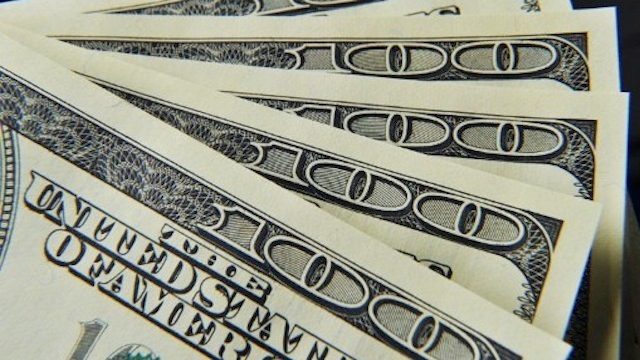SUMMARY
This is AI generated summarization, which may have errors. For context, always refer to the full article.

MANILA, Philippines – Foreign direct investments (FDIs), a key source of jobs and business financing, remained low in May at 41.9%, taking a beating from external shocks from the Greek debt crisis, the stock market collapse in China, and the impending interest rate hike in the US.
The Bangko Sentral ng Pilipinas (BSP) reported Monday, August 10, that FDI inflows fell 41.9% to $1.64 billion from January to May this year, versus $2.82 billion in the same period in 2014.
For May alone, FDIs reached $403 million or 6.8% lower compared to $433 million booked in the same month last year.
In April, FDI was down 43% from the $671 million recorded a year ago, mainly due to the decline in non-residents’ net placements in debt instruments.
In his last State of the Nation Address, President Benigno Aquino III said that FDI was another area that improved in his 5 years in office, with net foreign investments having reached $6.2 billion in 2014 from the $1.07 billion in 2010. (READ: Aquino: PH will be ‘first-world’ within generation if reforms continue)
Equity placements decline
Data showed net equity capital investments reached $440 million in the first 5 months of 2015, 31.2% from $639 million in the same period last year.
Equity placements declined though by 47.5% to $550 million from $1.05 billion, while withdrawals plunged by 73.1% to $110 million from $409 million.
The BSP said equity capital placements came mainly from the US, Germany, Japan, Singapore, and the United Kingdom. The funds were channeled primarily to financial and insurance; manufacturing; real estate; electricity, gas, steam and air conditioning supply; and wholesale and retail trade activities.
Earnings of foreign companies operating in the Philippines and plowed right back into the country retreated by 19.6% to $318 million from January to May 2015, from $396 million in the same period last year.
Likewise, non-residents’ net investments in debt instruments, including net intercompany borrowings declined by 26.8% to $757 million from $1.03 billion.
Reactive
Domestic financial markets continue to be highly reactive to external factors, including the US Federal Reserve (US Fed) liftoff, BSP Governor Amando Tetangco Jr. said.
“To the extent the moves of the advanced economy central banks create interest rate differentials that entice investors to shift portfolios around away from emerging market economies including the Philippines, we will see near-term domestic financial market volatility,” Tetangco said.
The impending tightening in the US and Europe could benefit emerging economies through improved global trade.
“But in the medium-term, normalization in the advanced economies should be positive for the domestic economy as this can lead to improvements in global trade,” he added.
The BSP’s Monetary Board is set to meet on Thursday, August 13 but is expected to keep key policy rates unchanged.
Strong macroeconomic fundamentals as well as low inflation that eased to a record low of 0.8% in July allowed monetary authorities to keep interest rates unchanged since September 2015.
The BSP chief said inflation is expected to pick up in the last quarter of the year due to the prolonged El Niño weather conditions until the first quarter of next year.
“The declining inflation turnouts in the last few months are seen to be transitory. The path of inflation going forward is seen to return to within target over the policy horizon,” he said. – Rappler.com
Add a comment
How does this make you feel?
There are no comments yet. Add your comment to start the conversation.